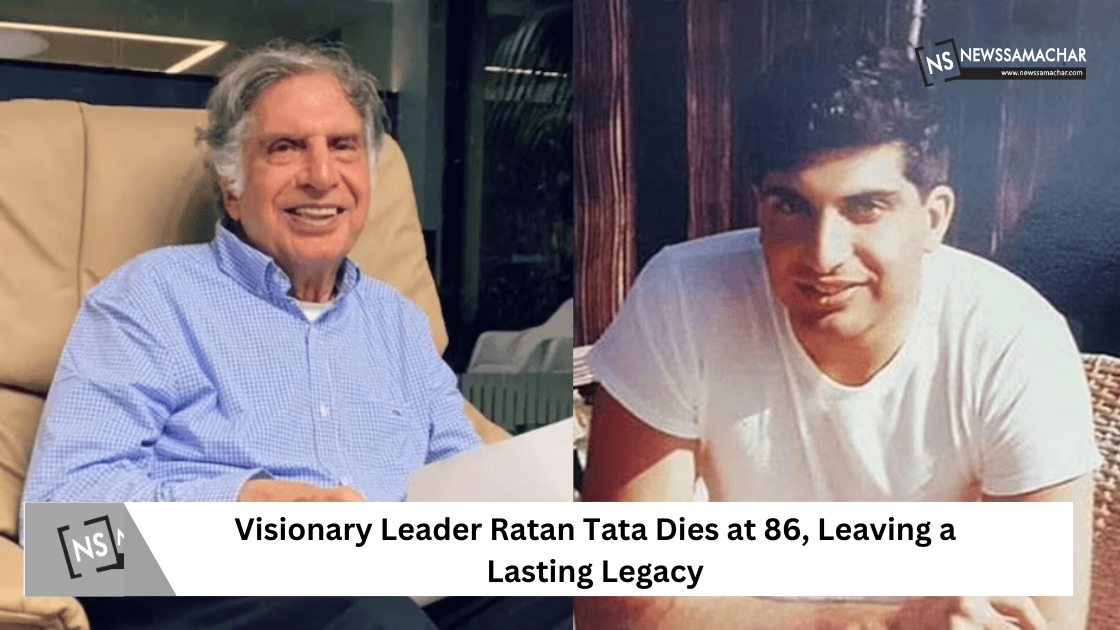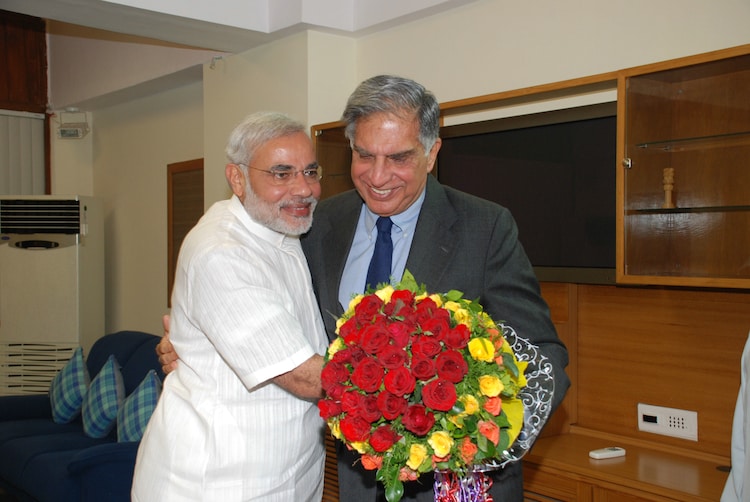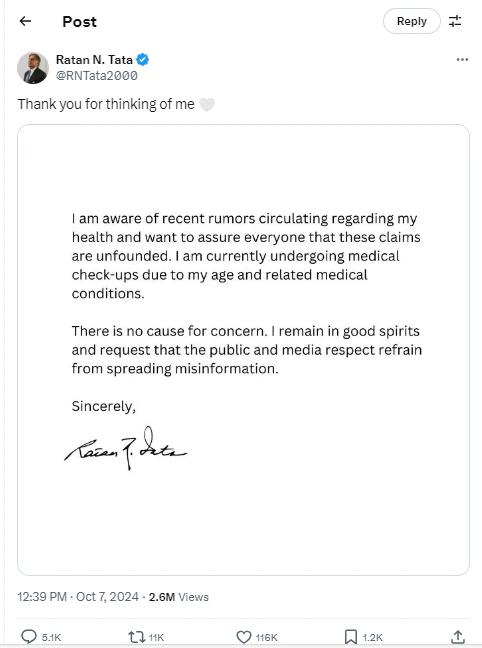
Ratan Naval Tata, the iconic industrialist and chairman emeritus of Tata Sons, passed away late Wednesday night at the age of 86. After battling a prolonged illness, he breathed his last at Mumbai’s Breach Candy Hospital, where he had been receiving treatment for the past few days.
The news of his demise has sent shockwaves across the nation, with tributes pouring in from all corners. In a heartfelt statement, Tata Sons Chairman N Chandrasekaran expressed profound grief, calling Tata a “mentor, guide, and friend.” He said, “Ratan Tata was more than just a chairman for the Tata Group. He embodied excellence, integrity, and innovation, shaping the group into a global powerhouse while staying true to its core values.”
PM Modi Pays Tribute to Ratan Tata

Prime Minister Narendra Modi led the nation in paying homage to Ratan Tata. Describing him as an “extraordinary human being” and a “visionary business leader,” PM Modi lauded his significant contributions to India’s business landscape and his philanthropy. “He provided stable leadership to one of India’s oldest and most prestigious business houses,” the Prime Minister remarked, while also highlighting Tata’s humble and compassionate nature, which endeared him to many.
State Funeral for Ratan Tata
In honor of his legacy, Maharashtra Chief Minister Eknath Shinde announced that Ratan Tata would be given a state funeral. The government also declared a day of mourning across Maharashtra. Tata’s body will be placed at the National Centre for the Performing Arts (NCPA) in Mumbai, where people can pay their last respects, before being taken to the Worli crematorium for the final rites.
Legacy of Global Expansion
Ratan Tata is credited with transforming the Tata Group from a primarily India-centric enterprise into a global brand. After completing his education in architecture at Cornell University, Tata joined his family business in 1962. Over the years, he made significant contributions to various Tata companies, with his leadership playing a pivotal role in the revival of the National Radio & Electronics Company (NELCO).
In 1991, Ratan Tata took over as chairman of the Tata Group from his uncle JRD Tata. His tenure coincided with India’s economic liberalization, and Tata made strategic decisions to expand the group’s global footprint. Under his leadership, Tata Motors launched Indica, India’s first indigenously developed car, followed by the affordable Nano. Tata’s international acquisitions, including Tetley Tea (2000), Corus Steel (2007), and Jaguar Land Rover (2008), cemented the group’s position as a global business giant.
Philanthropy and Humanitarian Efforts
Beyond the boardroom, Ratan Tata was deeply committed to philanthropy. He was the driving force behind Tata Trusts, through which he contributed to numerous initiatives in education, healthcare, and rural development. His contributions have touched millions of lives, leaving a lasting impact that will benefit future generations.
Final Words from Ratan Tata
In his last social media post on October 7, Ratan Tata addressed rumours about his health, assuring everyone that he was in “good spirits.” His message ended with the words, “Thank you for thinking of me.”

Honours and Recognition
Ratan Tata’s illustrious career was recognized with several prestigious awards. In 2008, he received the Padma Vibhushan, India’s second-highest civilian honour. The Rockefeller Foundation also awarded him the Knight Grand Cross of the Most Excellent Order of the British Empire and the Lifetime Achievement Award.
Also read: Ratan Tata Biography in Hindi: Ek Safaltam Vyakti Ki Prerna Daayak Kahani
Ratan Tata’s death marks the end of an era, but his legacy as a visionary leader, compassionate humanitarian, and humble individual will continue to inspire generations.







